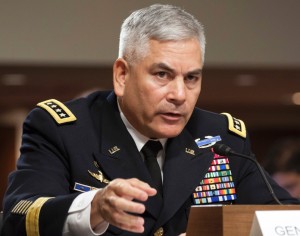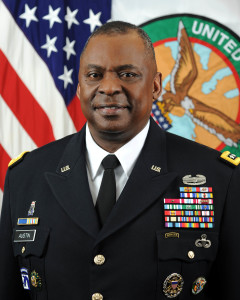Here are my observations on items in the news. Continue reading
Afghanistan
President Trump has his work cut out for him in the weeks ahead
Disillusioned with President Trump? Don’t let the left get you down. Continue reading
The sad reality that profanity in politics seems to be increasing
The recent repeated showings of DNC Chair Tom Perez referring to the president’s budget as a “shi**y budget, and word that you can order T-shirts that exclaim “Democrats give a sh** about people,” may seem mild today, but profanity seems to be increasing in politics. Continue reading
Assessing the mythical first 100 days of the Trump presidency
As expected, the media has been making much of the first 100 days of the Trump presidency, with the focus primarily on his failures and his less than stellar approval/disapproval ratings. It’s a continuance of their hatred – yes hatred – of the man who stole the election from their candidate, Hillary Clinton. Continue reading
No flip-flop … tax preparers … Border Agent killer … Texas Voter ID … and more
My observations on items in the news. Continue reading
Flynn’s resignation, and more …
WAS THE PRESIDENT TOO HASTY in asking Mike Flynn for his resignation? I wonder. Word is that it was a matter of trust, and not the fact that he spoke to the Russian ambassador. He wasn’t honest with Vice President Mike Pence. ” The idea that one should be all aghast because the incoming national security advisor spoke with the Russian ambassador and spoke about sanctions seems to me to be perfectly reasonable,“ said commentator Charles Krauthammer.… read more
White House spin on war continues
Perhaps you haven’t heard. President Obama has ended two wars. He has stated so several times, and his closest advisor Valerie Jarrett confirmed it on CBS’ 60 Minutes last Sunday. Continue reading
“W” was correct
“To begin withdrawing before our commanders tell us we are ready would be dangerous for Iraq, for the region and for the United States. It would mean surrendering the future of Iraq to Al Qaeda. It would mean that we’d be risking mass killings on a horrific scale. It would mean we allow for terrorists to establish a safe haven in Iraq to replace the one they lost in Afghanistan. It would mean we’d be increasing the probability that American troops would have to return at some later date to confront an enemy that is even more dangerous.” – President George W. Bush, July 12, 2007 press briefing.
While reading of the slow build-up of troops in Iraq, I was reminded of how prophetic President George W. Bush was as he was preparing to leave office, warning of the consequences of an early withdrawal from Iraq.
The handwriting was on the wall when Vice President Joe Biden failed to secure a status of forces agreement with Iraq and President Obama pledged to remove all troops from the country. ISIS took control of a major portion of Iraq and captured cities our troops had died for earlier. Continue reading
General Campbell takes principled stand on Afghanistan
“Based on conditions on the ground, I do believe we have to provide our senior leadership options different from the current plan we are going with.” – Gen. John Campbell, Oct. 6, 2015
I have frequently been critical of President Obama’s “lead from behind” foreign policy and his decision to fulfill his campaign promise to get out of Iraq and Afghanistan regardless of advice he gets from the Pentagon.
At the same time, I have been critical of those generals who salute and obey the orders of the commander-in-chief to protect their careers. My Sept. 25, post, “Our military on “hold” until January 2017,” was my most recent piece on this subject.
Yesterday, however, Gen. John Campbell, our top commander in Afghanistan, told the Senate Armed Services Committee, that our long-standing plan for troop reductions there should be revised in favor of a larger U.S. presence. He referred to the changes on the ground over the past two years, since the president last issued his plan for troop removals. Continue reading
Our military on “hold” until January 2017
As someone who believes in a strong defense, over the past six years I have watched President Obama weaken our military and the reputation it has enjoyed globally for years.
I recently witnessed an embarrassing testimony by Army Gen. Lloyd Austin before the Senate Armed Services Committee, in which he said, “Despite some slow movement at the tactical level, we continue to make progress across the battlespace in support of the broader U.S. government strategy to degrade and ultimately defeat ISIS.”
In view of information that reports out of General Austin’s U. S. Central Command were overstated to paint a rosier picture of its success in Iraq and Syria, the Senators weren’t pleased with his testimony. It was learned that analysts were told to revise their reports of U.S. air strike damage to support command assessments of mission success. They were also urged to state that the killing of certain ISIS leaders would diminish the organization and lead to its collapse. Continue reading




